Angharad Williams
Eraser
02 Sep - 27 Nov 2022
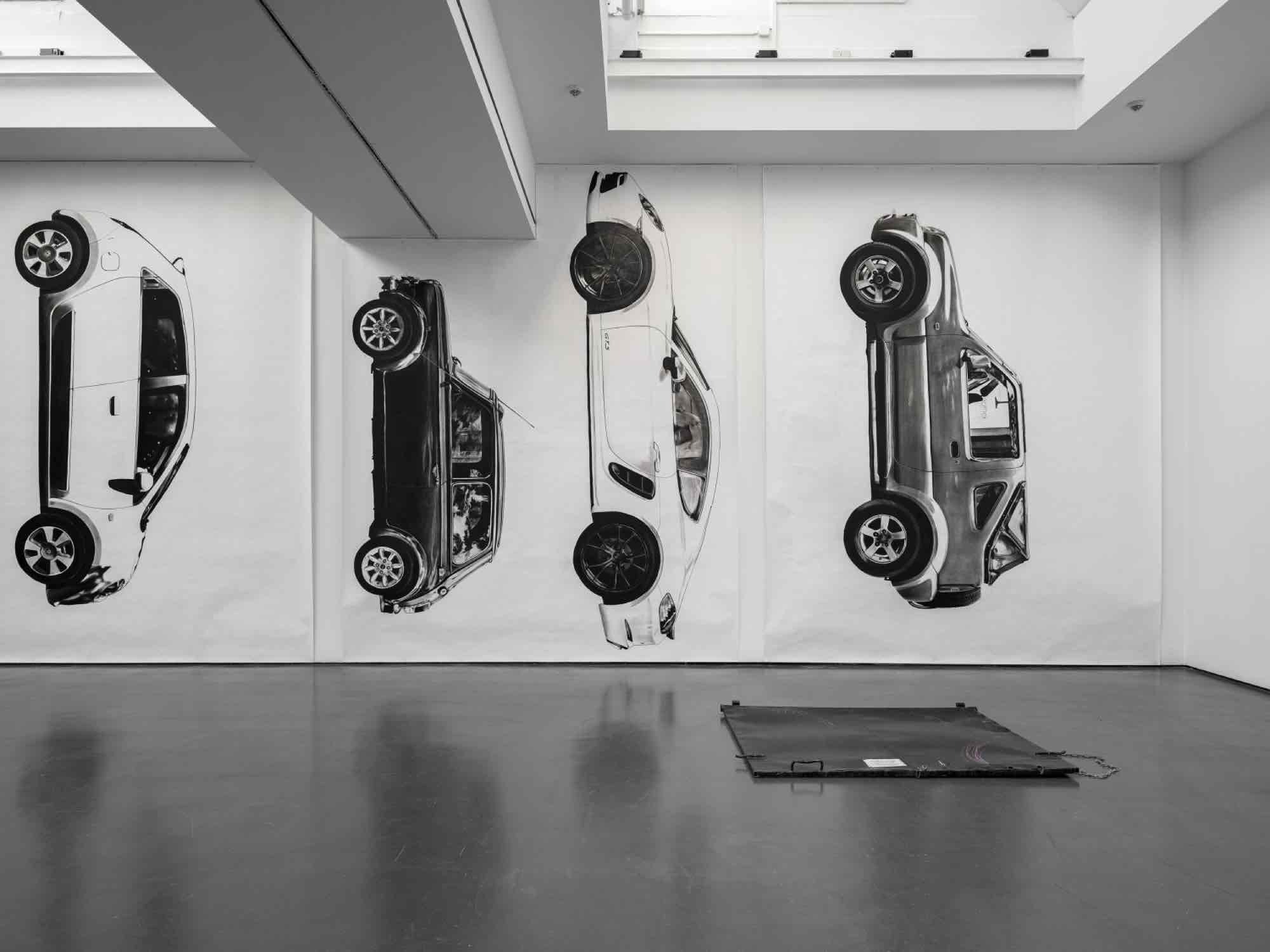
Angharad Williams, What it feels like to live another day (2022, detail), Cars (2022), installation view Eraser, Kunstverein für die Rheinlande und Westfalen, Düsseldorf, 2022, photo: Cedric Mussano
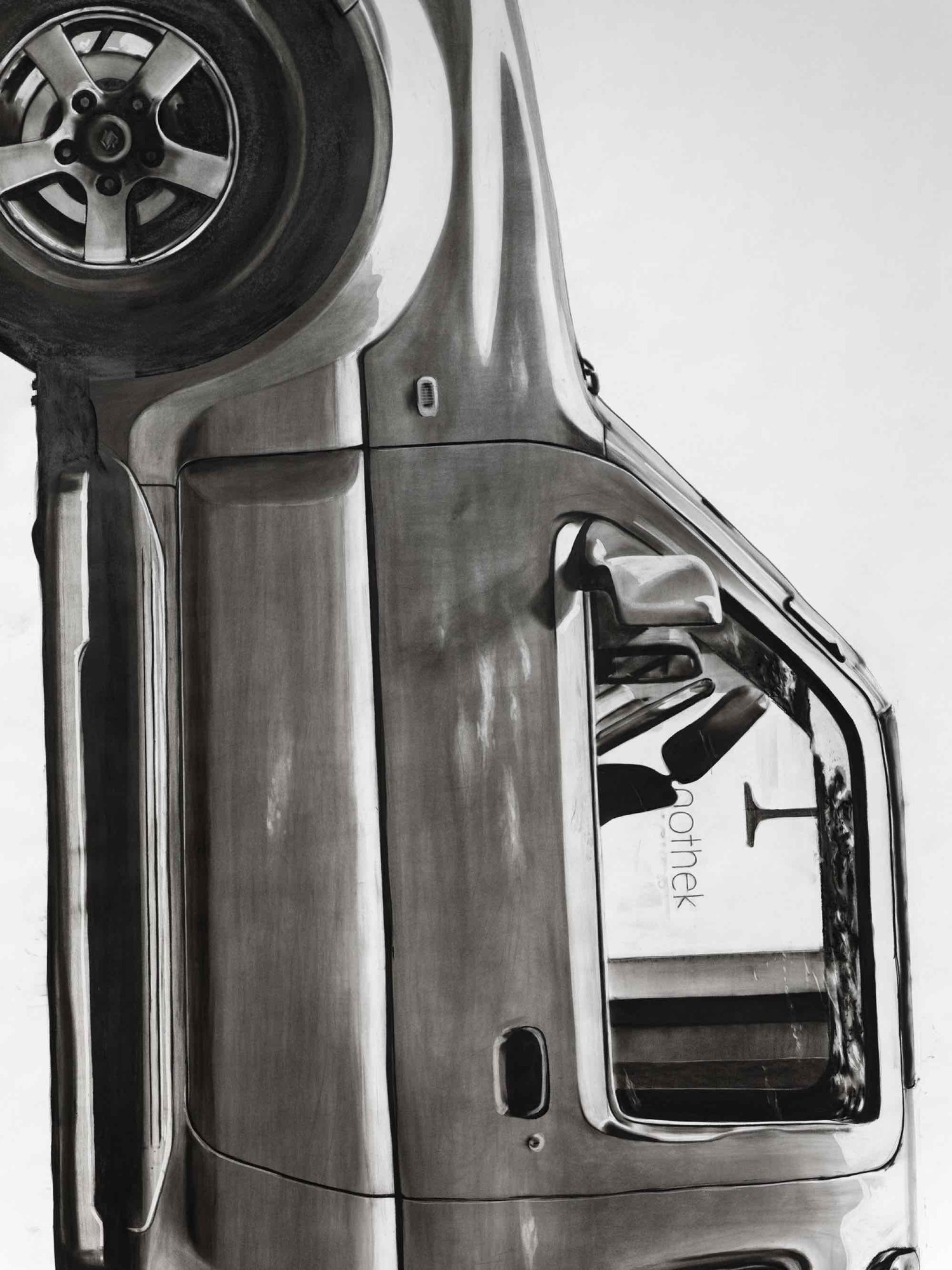
Angharad Williams, Cars (2022, detail), installation view Eraser, Kunstverein für die Rheinlande und Westfalen, Düsseldorf, 2022, photo: Cedric Mussano
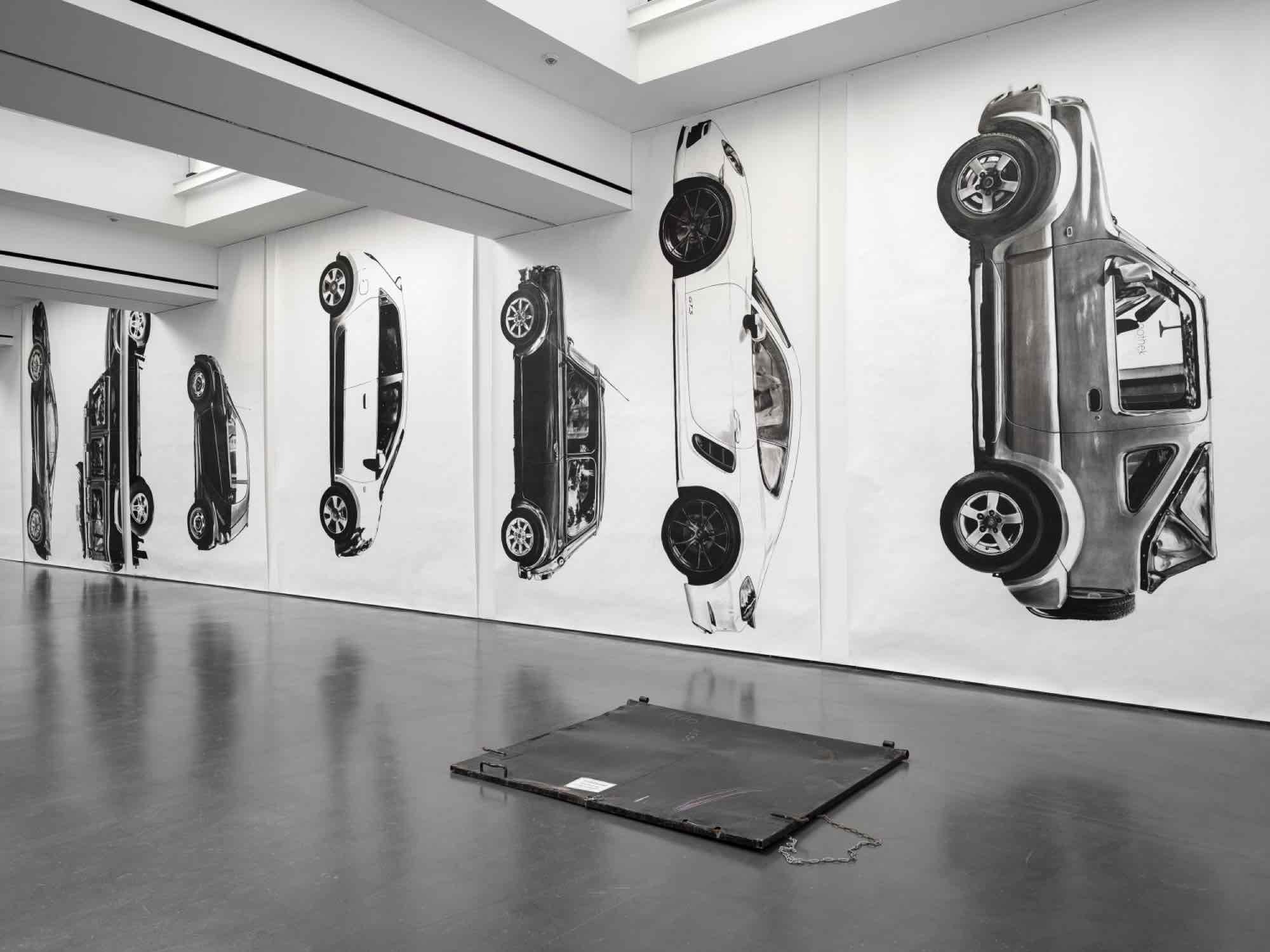
Angharad Williams, What it feels like to live another day (2022, detail), Cars (2022), installation view Eraser, Kunstverein für die Rheinlande und Westfalen, Düsseldorf, 2022, photo: Cedric Mussano
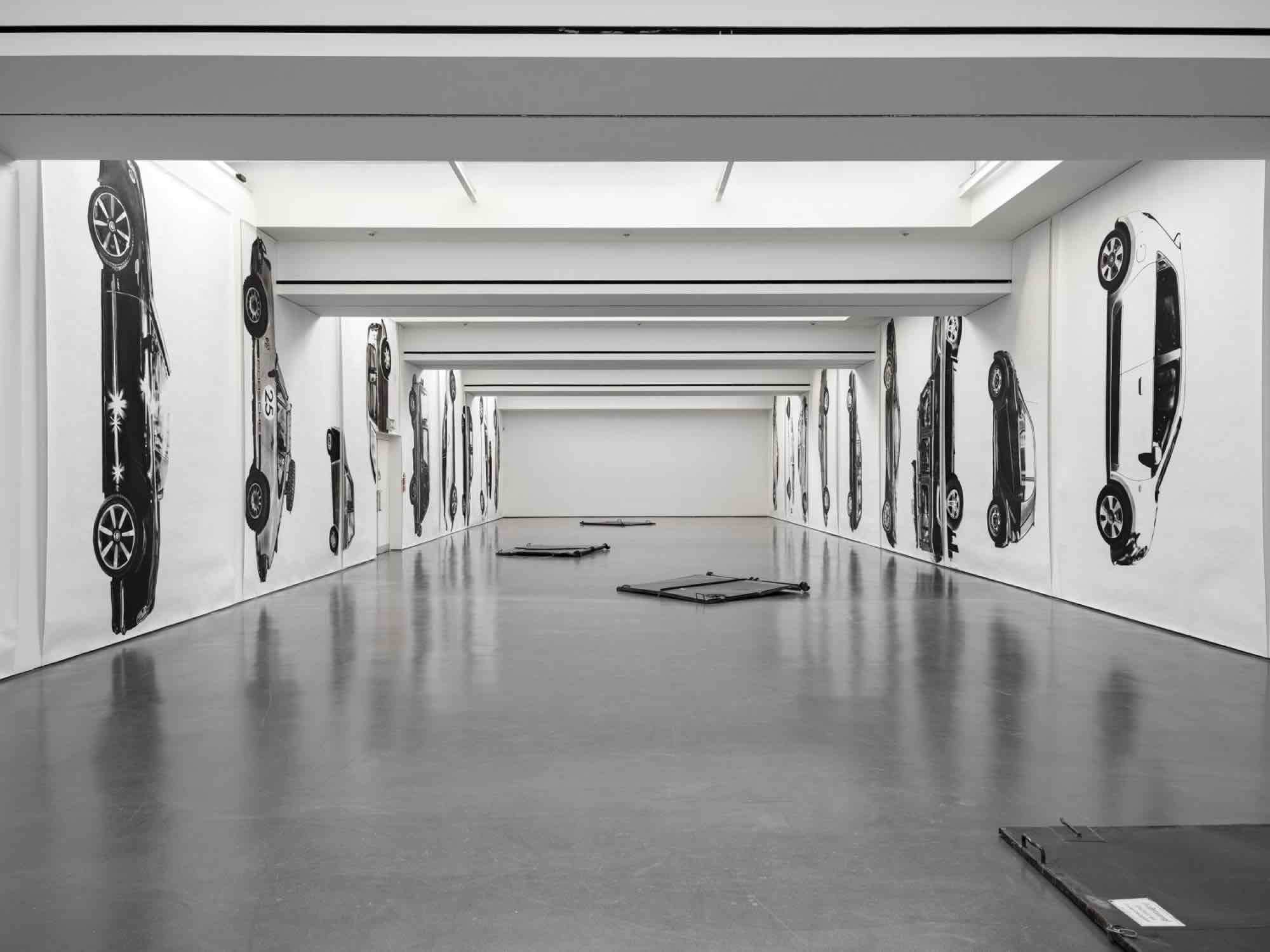
Angharad Williams, What it feels like to live another day (2022), Cars (2022), installation view Eraser, Kunstverein für die Rheinlande und Westfalen, Düsseldorf, 2022, photo: Cedric Mussano
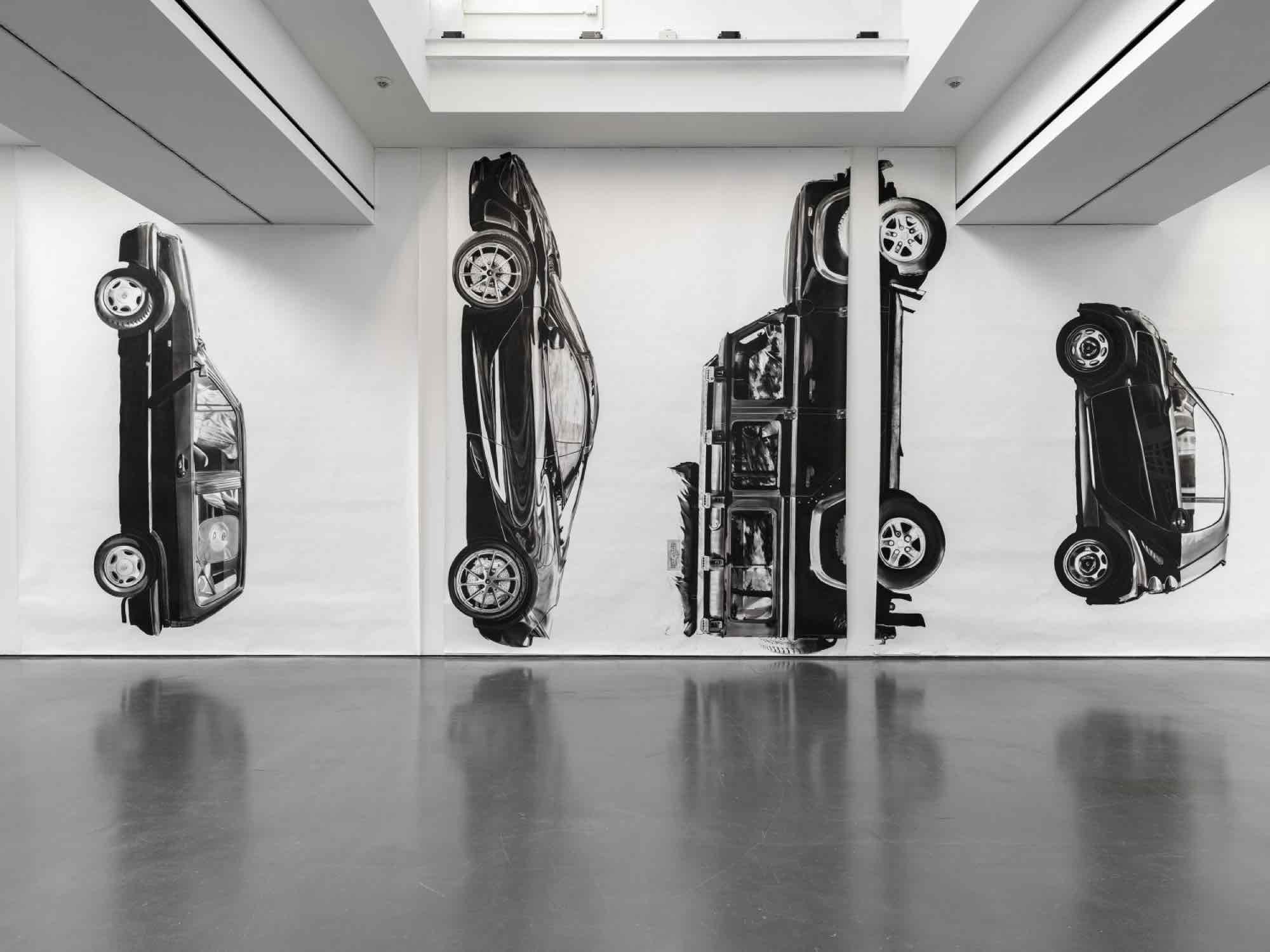
Angharad Williams, Cars (2022), installation view Eraser, Kunstverein für die Rheinlande und Westfalen, Düsseldorf, 2022, photo: Cedric Mussano
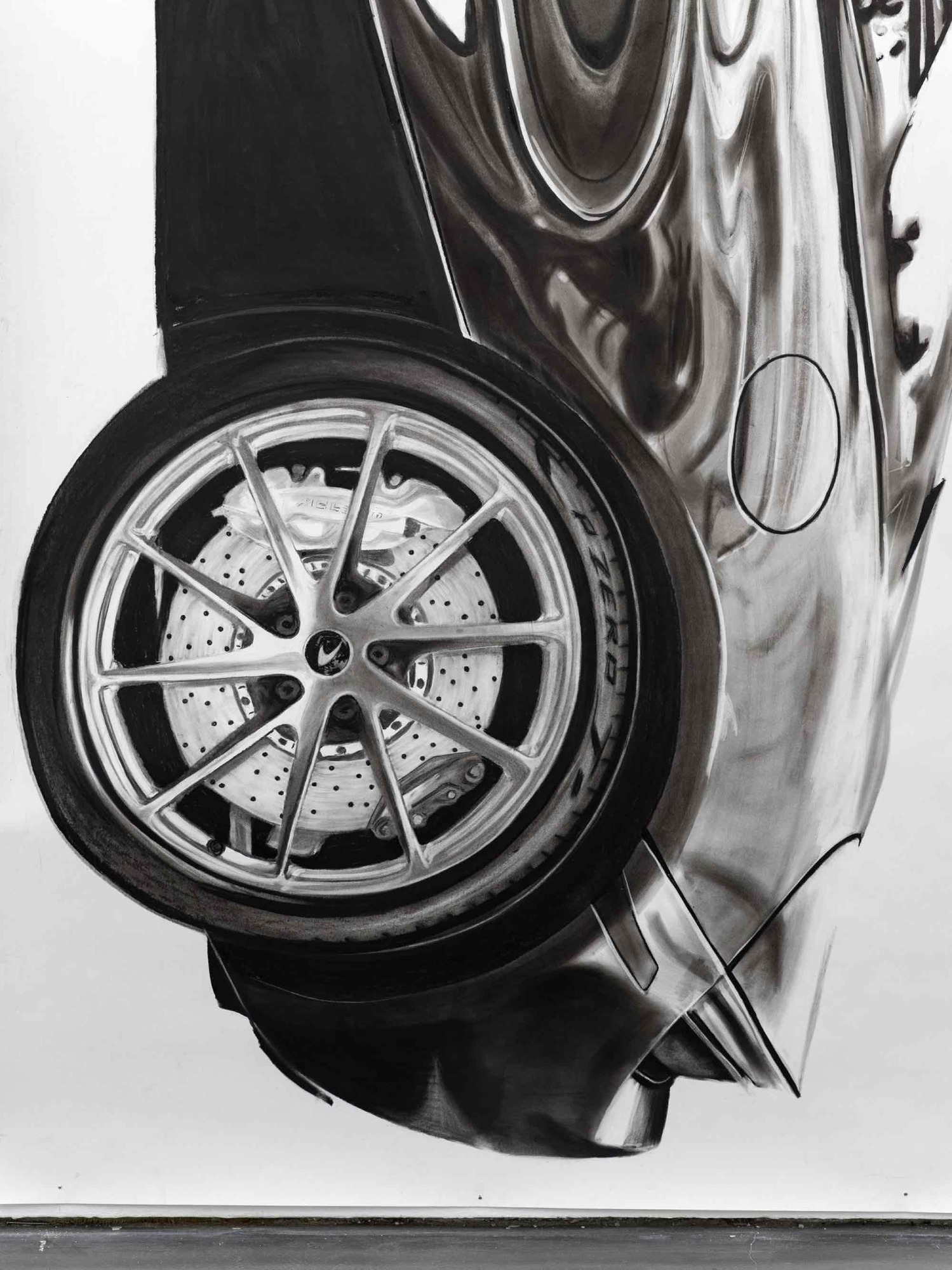
Angharad Williams, Cars (2022, detail), installation view Eraser, Kunstverein für die Rheinlande und Westfalen, Düsseldorf, 2022, photo: Cedric Mussano
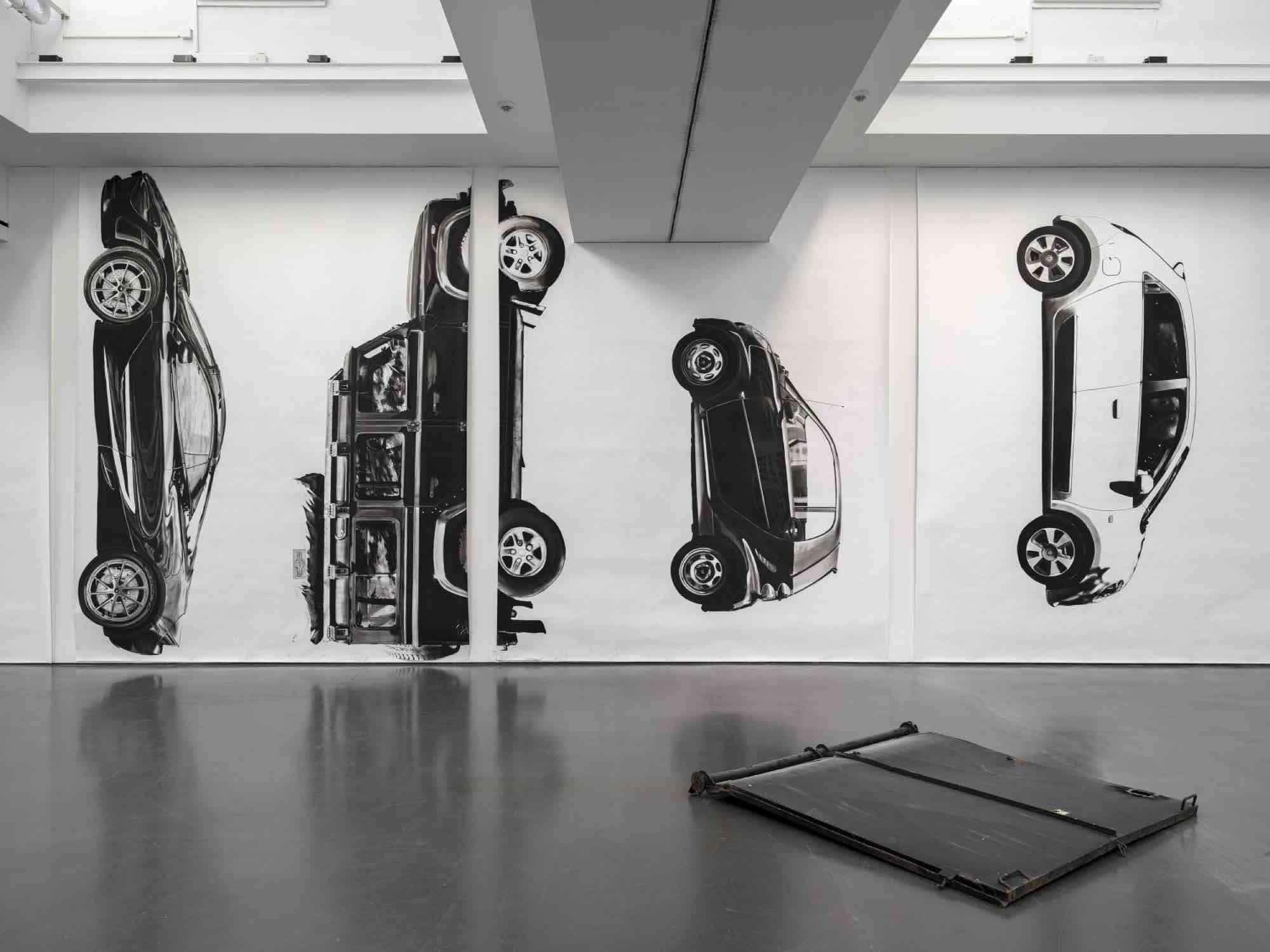
Angharad Williams, What it feels like to live another day (2022, detail), Cars (2022), installation view Eraser, Kunstverein für die Rheinlande und Westfalen, Düsseldorf, 2022, photo: Cedric Mussano
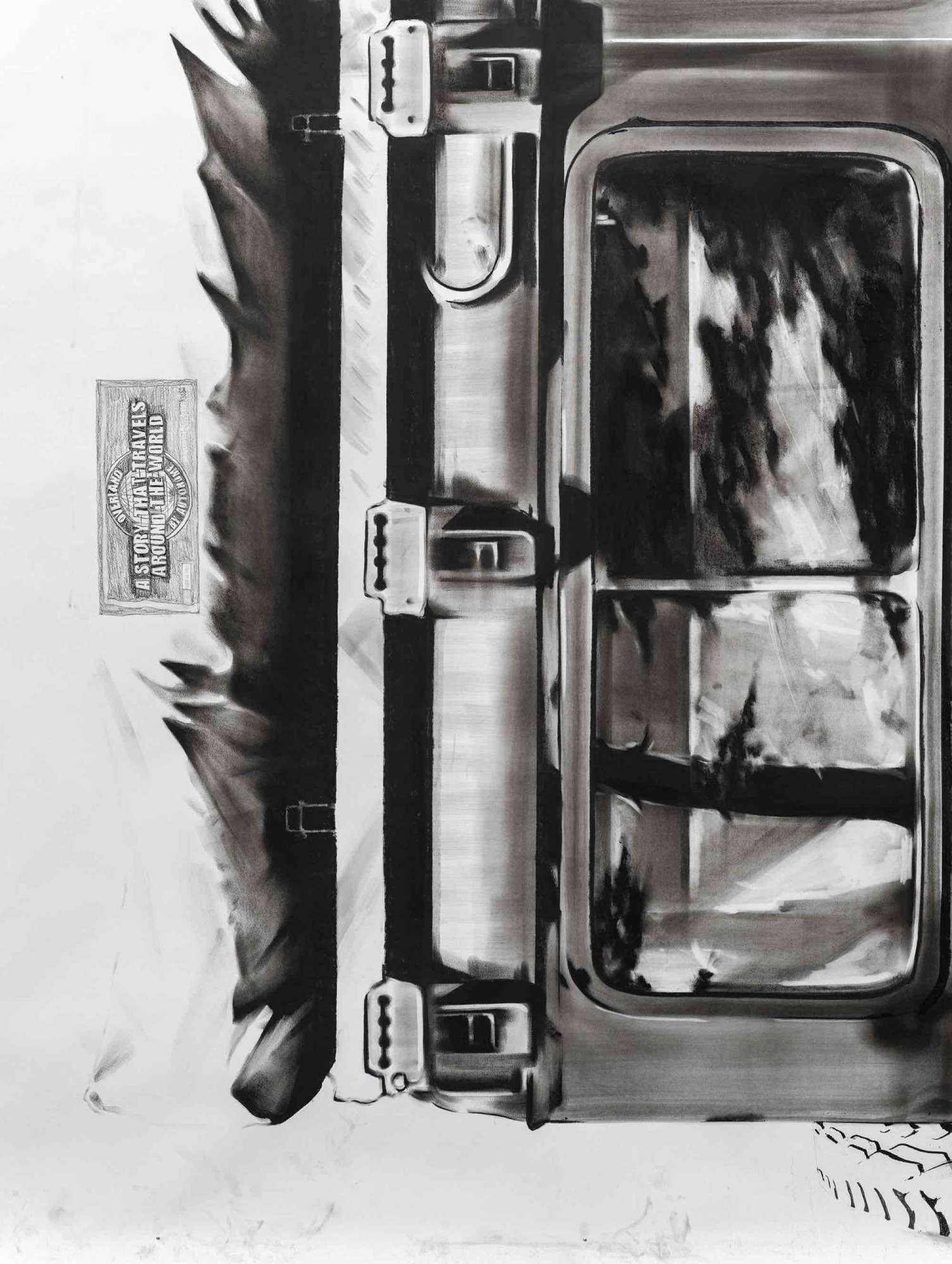
Angharad Williams, Cars (2022, detail), installation view Eraser, Kunstverein für die Rheinlande und Westfalen, Düsseldorf, 2022, photo: Cedric Mussano
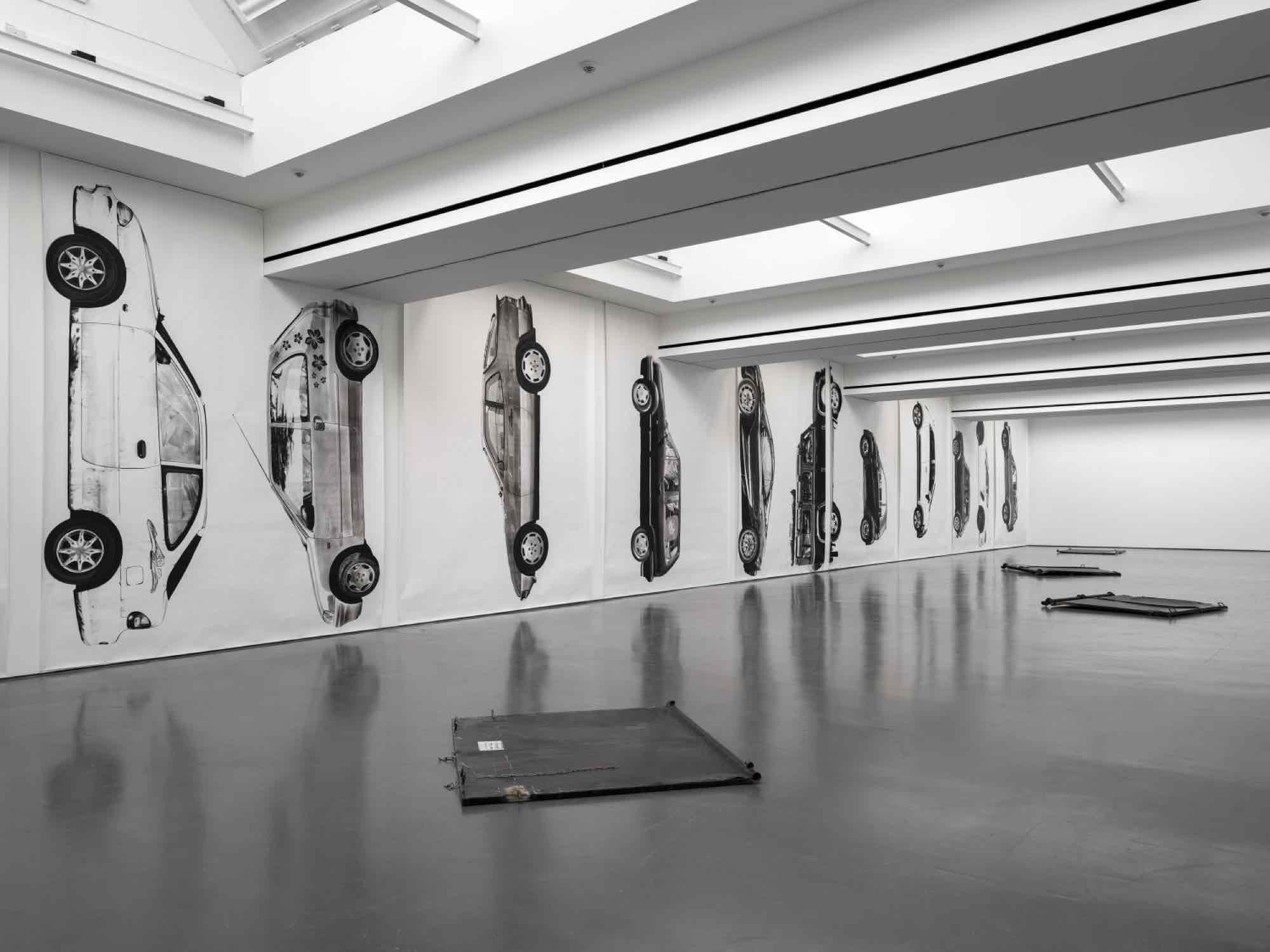
Angharad Williams, What it feels like to live another day (2022), Cars (2022), installation view Eraser, Kunstverein für die Rheinlande und Westfalen, Düsseldorf, 2022, photo: Cedric Mussano
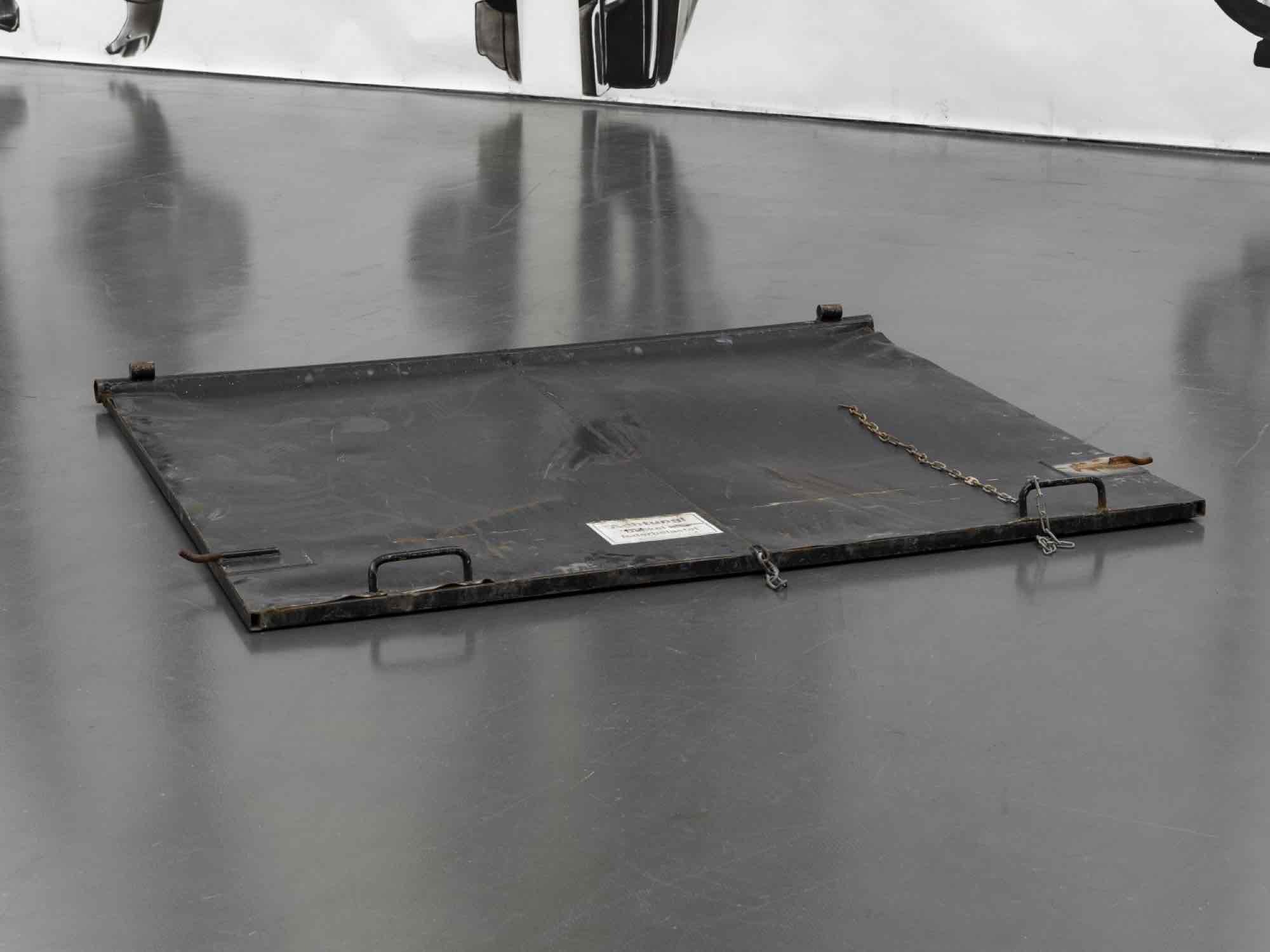
Angharad Williams, What it feels like to live another day (2022, detail), installation view Eraser, Kunstverein für die Rheinlande und Westfalen, Düsseldorf, 2022, photo: Cedric Mussano
Eraser is as much about the categorical boundaries of our consensual reality—between self and other, human and non-human, waking and dreaming consciousness—as it is about an urge to overcome them. It addresses the relationship between inner and outer worlds and the marks, both destructive and curative, that we irrevocably leave on our surrounding worlds in every step and decision we take— and likewise explores the marks those worlds leave on us. Formally, this translates into a dialogue between interior and exterior spaces of the Kunstverein, which Angharad Williams (born in Ynys Môn, Wales, lives and works in Berlin) connects in shifting spatial registers of isolation from and exposure to an external gaze. Williams’ expanding multimedia practice—bridging installation, performance, writing, film, painting, and more recently also drawing—materializes primarily through a metaphorical and allegorical visual language that is firmly anchored in the materiality of the everyday. Objects and speech are revealed in her work less as what they are and more as pervasively performative forces through which we channel ourselves, our desires, fears, prejudices, and privileges and which function as a projection screen for our view of the world and others.
Eraser concludes the two-year process of writing the eponymous prose text that will be published this fall alongside the exhibition. Echoing its sense of an unstable world in which the categorical distinctions between individual self, others, and non-human life slowly begin to dissolve, Williams has conceived new site-responsive works, among them an extensive suite of large-scale charcoal drawings which take the ever-charged, ambivalent symbolism of cars as a point of departure to seize upon the deeper layers of our state of mind. While cars have become synonymous with safety during the pandemic—as individualized spaces of protection shielding us from one another—their symbolic charge is currently increasing in light of impending systemic collapse and (geo-)political discussions on fossil fuels and renewable energies. Based on photographs of cars taken in various Berlin neighborhoods, her photorealistic drawings register (German) class relations and the symbolism of social aspiration on the one hand and, on the other, a more subjective sense of how life might feel if looked at from the compressed space of a McLaren Spider, a Skoda Roomster, or a VW Beetle. Other new works draw instead from the porous, unstable boundary between waking and dreaming consciousness and from what lies beneath our rational state—where established power relations might overturn at any moment.
Eraser is Angharad Williams’ first institutional solo show in Germany. It will be accompanied by a range of events, among them a performance by the artist. The book Eraser will be published this fall.
Curated by Kathrin Bentele
Eraser concludes the two-year process of writing the eponymous prose text that will be published this fall alongside the exhibition. Echoing its sense of an unstable world in which the categorical distinctions between individual self, others, and non-human life slowly begin to dissolve, Williams has conceived new site-responsive works, among them an extensive suite of large-scale charcoal drawings which take the ever-charged, ambivalent symbolism of cars as a point of departure to seize upon the deeper layers of our state of mind. While cars have become synonymous with safety during the pandemic—as individualized spaces of protection shielding us from one another—their symbolic charge is currently increasing in light of impending systemic collapse and (geo-)political discussions on fossil fuels and renewable energies. Based on photographs of cars taken in various Berlin neighborhoods, her photorealistic drawings register (German) class relations and the symbolism of social aspiration on the one hand and, on the other, a more subjective sense of how life might feel if looked at from the compressed space of a McLaren Spider, a Skoda Roomster, or a VW Beetle. Other new works draw instead from the porous, unstable boundary between waking and dreaming consciousness and from what lies beneath our rational state—where established power relations might overturn at any moment.
Eraser is Angharad Williams’ first institutional solo show in Germany. It will be accompanied by a range of events, among them a performance by the artist. The book Eraser will be published this fall.
Curated by Kathrin Bentele
